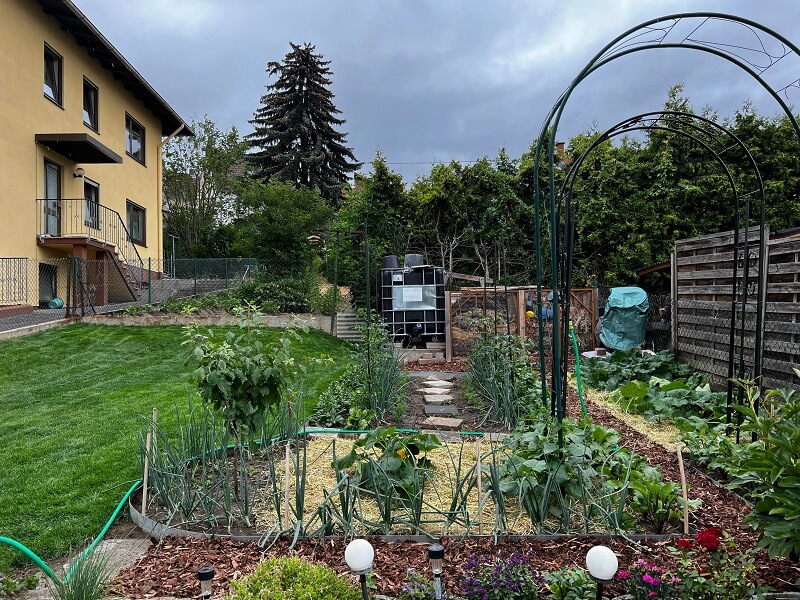One homeowner realized small changes make a huge difference when it comes to landscaping.
In a post on r/OrganicGardening, one Redditor shared before and after pictures of their garden.

The difference is drastically beautiful. A once sparse and weed-filled dirt yard that looked dull and barren was given a magical makeover. The space is now a lush plant, flower, and veggie-packed garden with a woodchip walkway and stone path.
"Didn't think it was that much of a difference until I found the picture from earlier this year," the Redditor wrote. "Really happy with how it turned out."
While lush doesn't necessarily mean healthy and eco-friendly, making the switch to a natural lawn — including clover lawns, vegetable gardens, and tapestry lawns — can certainly be all of the above.
Cultivating a natural yard will save you money. It requires zero pesticides, less water, and less fertilizer to thrive, which minimizes water consumption and irrigation, preventing chemical runoff from polluting local water sources. A native lawn can reduce your water usage by 1,750,000 gallons over the span of a decade.
Native plants will thrive without jeopardizing the environment around them. In fact, rewilding your yard provides food and habitats for local wildlife. Native plants grow easier than imported plants and require less maintenance. It's gardening made easy, which isn't always the case.
The natural lawn movement is a trend that attracts local pollinators and wildlife by replacing manicured grass yards and imported plants with native plants, flowers, and vegetation. Pollinators such as bees and butterflies are crucial to the health of the environment and our food supplies.
More than 80% of the world's flowering plants and approximately 35% of food crops need a pollinator to reproduce. The USDA reports that one out of every three bites of food we eat comes from pollinated plants. Our survival depends on them.
If you're ready to transform your yard, what you can plant differs from region to region. You can check the USDA Plant Hardiness Zone Map to find options for plants native to your area.
The post was especially appreciated by one Redditor.
"What a transformation!" they exclaimed. "Nice work."
Join our free newsletter for easy tips to save more, waste less, and help yourself while helping the planet.









